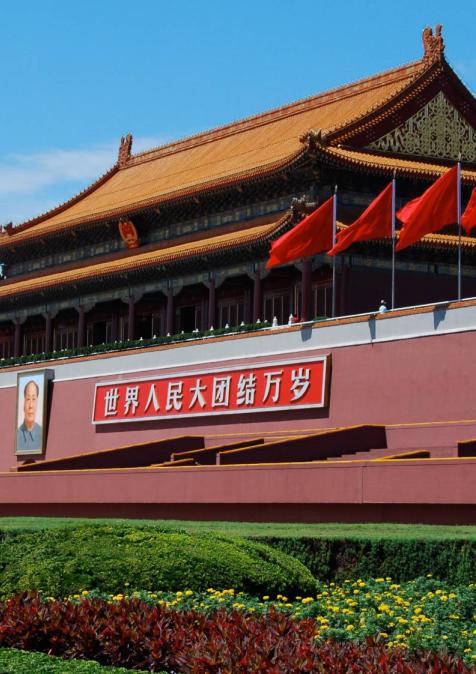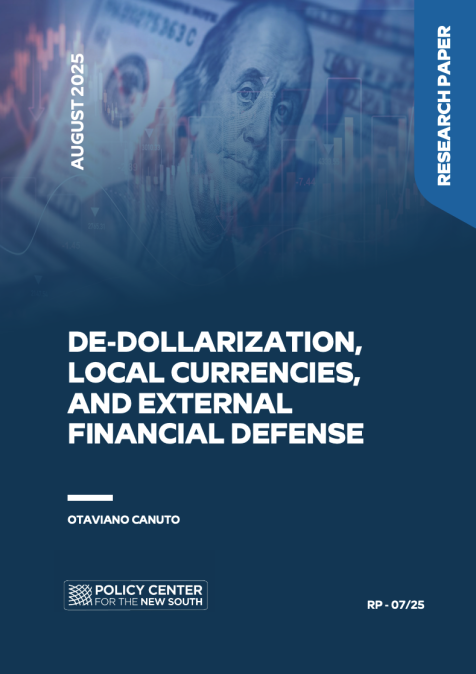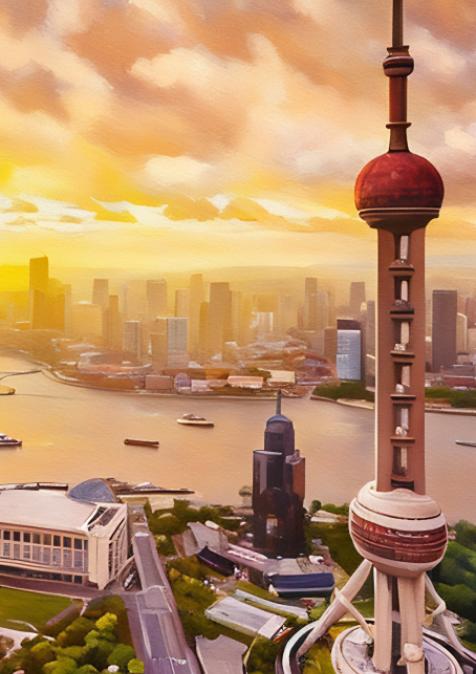Publications /
Opinion
There is no doubt that China's 70th Anniversary celebration was the display of a new world superpower. From the military parade to the issuance of a paper reporting China's role in the New Era, it is clear that the country, whose current political system was established on 1 October 1949, is much different, more assertive and with a clear perspective of the role it wants to play in the international scenario. Everywhere in Beijing, the Chinese National Anthem was played, reminding the Chinese to: "Arise, ye who refuse to be slaves; with our very flesh and blood, Let us build our new Great Wall!"
China went through a challenging period after the British imposed a humiliating defeat with the Opium Wars. From that moment on, a period known as the "One Hundred Years of Humiliation" saw a divided China conquered by colonial powers, leading "the Middle Kingdom" to realise its frailties, incapacities and lack of structure to meet the challenges imposed by the much modernised West. China had stopped in time, and its perspectives were not bright. The "sick man of Asia" had fallen and seemed not to have any strength left to rise and change its path forward.
The revolutionaries of 1949, though having applied equivocated policies like the "Great Leap Forward" and the "Cultural Revolution", were able to unify the country and begin the process of rejuvenation, which is the goal to have a fully-developed, unified China, not an easy task for a civilisation with more than 5,000 years of existence. The process seemed prone to failure until 1978, when Deng Xiaoping, reviewing the errors of the past and planning for the future, implemented "Reform and Opening-up". Within 40 years, China's gross domestic product grew exponentially, the welfare level of its citizenry improved considerably and slowly, but inevitably, the country came up from the ashes.
Similarly to what the Second World War enabled the United States as an economic advantage, the phenomenon of globalisation provided China with the perfect scenario to navigate the new reality of the global supply chain. China was skilful at taking advantage of the moment. By using its most available resources – a vast population and the desire to work hard – in a national effort to come out from the ashes, China implemented a strategy leading to continuous growth.
Three pillars have been essential for the construction of this New China: Centralised Planning, Confucianism and Market Economy (within State Capitalism). These three factors would deserve hundreds of pages to describe how such pillars have affected China fully. It suffices to say that the meritocratic concept established by Confucius created a system where highly qualified individuals conduct the affairs of the Chinese government. In that sense, President Xi Jinping recently recognised that the decision-making process of China should be democratised to ensure fair competition to attract the best talent and yet secure that power is used in a restricted and supervised way.
Such system, relying on the high levels of domestic savings by the population, was able to strengthen the power of the government as it enhanced the role of its state-owned enterprises and opened up the market to private capital in areas where private capital was more efficient. Of course, pragmatism is the backbone for these three pillars. Deng's famous quote about the efficiency of a cat being measured by the fact that it catches mice, and not by its colour or ideology, clearly makes one realise that China does not waste time in political discussions that will lead nowhere like we tend to do in the West quite often. The active presence of the State is a reality, which strengthens a sense of nationalism and shared destiny.
Of course, there are episodes like 1989 or the current events in Hong Kong that some will bring up to tarnish the Chinese accomplishments. It is true. They are a reality and will not be erased. However, as the document "China and the World in the New Era" reminds us, "Rome was not built in a day!" To those who doubt such process of national "peaceful reunification", President Xi Jinping's emphasis on the principle of "one country, two systems" demonstrated the resolve to maintain stability both in Hong Kong and Macao and eventually Taiwan, to secure long-term prosperity for China and Asia. The Chinese administration considers such events as bumps in the road to New China.
In the field of International Relations, China is advocating a new type of inter-state relations, where partnerships, not alliances, should prevail, eventually leading to mutual advantage projects of cooperation. This idea recognises that more significant interaction could generate new approaches to address issues related to world security, development, peace and stability, thus overcoming the concept of anarchy in the international system.
Finally, the message delivered on Tiananmen Square on 1 October 2019 was loud and clear: "No force can ever shake the status of China or stop the Chinese people and nation from marching forward". The country which has steadily reversed poverty, weakness and humiliation, has embarked on the process of profound changes. The lyrics of the Chinese National Anthem reflect a clear call for its people to seek a new future, reminding them that China has been responsible for building one of the 7 Wonders of the World. The call to build a new Great Wall with flesh and blood is, therefore, a reminder of the historical determination of the Chinese people to build a new future. China is looking forward to 2025 and 2049. The fact that the country has definite plans for the coming years should be a reminder to all countries in the world that, with no strategy, nowhere becomes the final destination. Perhaps this is the greatest of all the Chinese messages to the world in its 70th Anniversary











